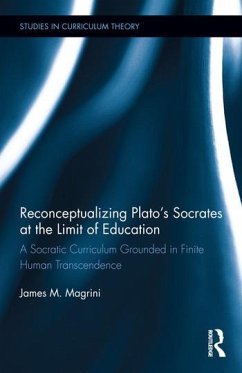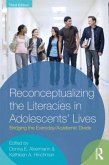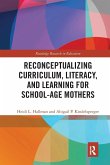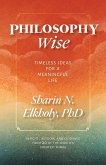Bridging the gap between interpretations of "Third Way" Platonic scholarship and "phenomenological-ontological" scholarship, this book argues for a unique ontological-hermeneutic interpretation of Plato and Plato's Socrates. Reconceptualizing Plato's Socrates at the Limit of Education offers a re-reading of Plato and Plato's Socrates in terms of interpreting the practice of education as care for the soul through the conceptual lenses of phenomenology, philosophical hermeneutics, and ontological inquiry. Magrini contrasts his re-reading with the views of Plato and Plato's Socrates that dominate contemporary education, which, for the most part, emerge through the rigid and reductive categorization of Plato as both a "realist" and "idealist" in philosophical foundations texts (teacher education programs). This view also presents what he terms the questionable "Socrates-as-teacher" model, which grounds such contemporary educational movements as the Paideia Project, which claims to incorporate, through a "scripted-curriculum" with "Socratic lesson plans," the so-called "Socratic Method" into the Common Core State Standards Curriculum as a "technical" skill that can be taught and learned as part of the students' "critical thinking" skills. After a careful reading incorporating what might be termed a "Third Way" of reading Plato and Plato's Socrates, following scholars from the Continental tradition, Magrini concludes that a so-called "Socratic education" would be nearly impossible to achieve and enact in the current educational milieu of standardization or neo-Taylorism (Social Efficiency). However, despite this, he argues in the affirmative that there is much educators can and must learn from this "non-doctrinal" re-reading and re-characterization of Plato and Plato's Socrates.
Hinweis: Dieser Artikel kann nur an eine deutsche Lieferadresse ausgeliefert werden.
Hinweis: Dieser Artikel kann nur an eine deutsche Lieferadresse ausgeliefert werden.








